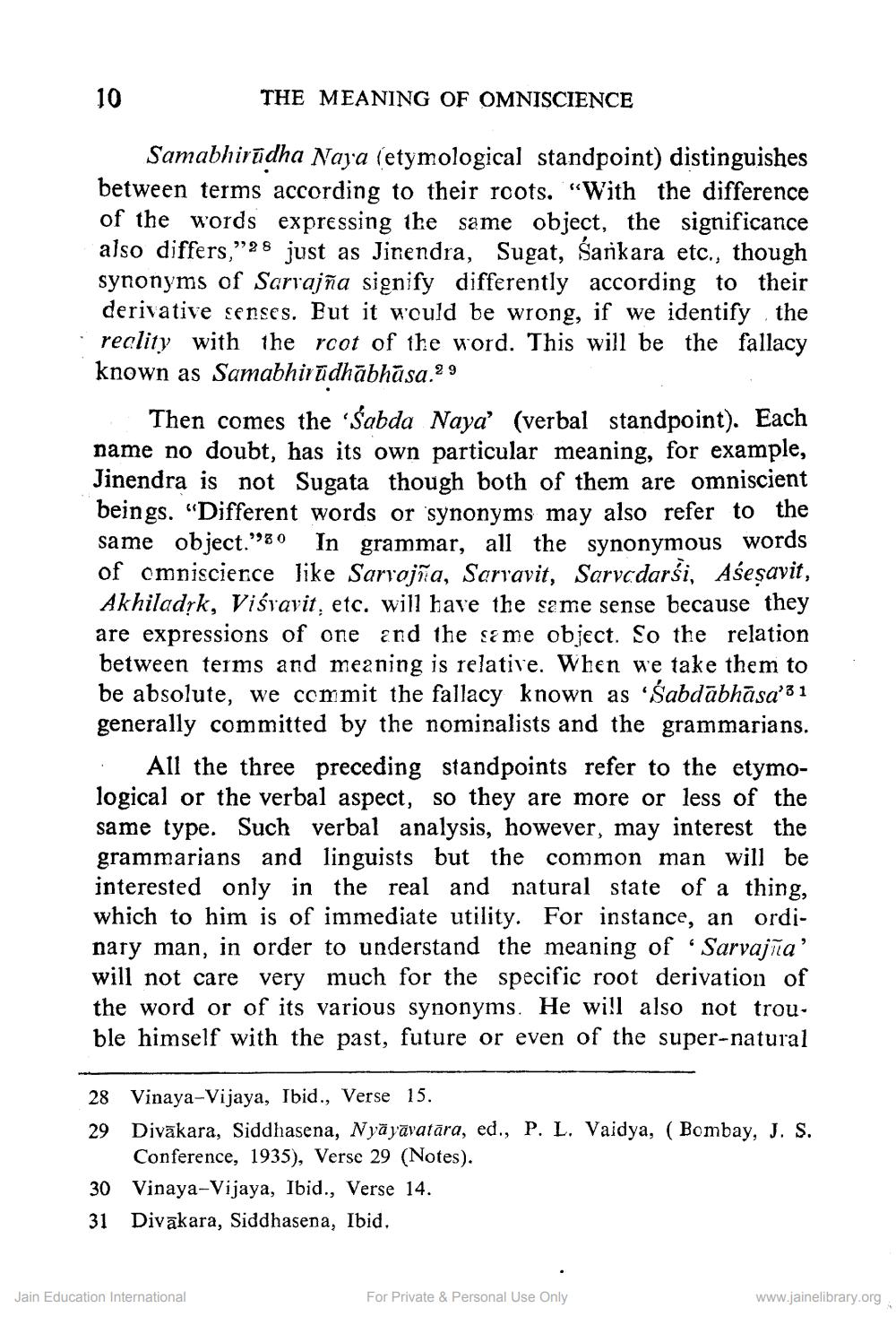________________
10
THE MEANING OF OMNISCIENCE
Samabhirudha Naya (etymological standpoint) distinguishes between terms according to their roots. "With the difference of the words expressing the same object, the significance also differs,"28 just as Jinendra, Sugat, Sarikara etc., though synonyms of Sarvajña signify differently according to their derivative senses. But it would be wrong, if we identify the reality with the root of the word. This will be the fallacy known as Samabhirudhābhāsa.29
Then comes the 'Sabda Naya' (verbal standpoint). Each name no doubt, has its own particular meaning, for example, Jinendra is not Sugata though both of them are omniscient beings. "Different words or synonyms may also refer to the same object."80 In grammar, all the synonymous words of cmniscience like Sarvajña, Sarvavit, Sarvcdarši, Aseṣavit, Akhiladṛk, Viśvavit, etc. will have the same sense because they are expressions of one and the same object. So the relation between terms and meaning is relative. When we take them to be absolute, we commit the fallacy known as 'Sabdabhāsa'31 generally committed by the nominalists and the grammarians.
All the three preceding standpoints refer to the etymological or the verbal aspect, so they are more or less of the same type. Such verbal analysis, however, may interest the grammarians and linguists but the common man will be interested only in the real and natural state of a thing, which to him is of immediate utility. For instance, an ordinary man, in order to understand the meaning of 'Sarvajña' will not care very much for the specific root derivation of the word or of its various synonyms. He will also not trouble himself with the past, future or even of the super-natural
28 Vinaya-Vijaya, Ibid., Verse 15.
29 Divakara, Siddhasena, Nyāyāvatāra, ed., P. L. Vaidya, (Bombay, J. S. Conference, 1935), Verse 29 (Notes).
30 Vinaya-Vijaya, Ibid., Verse 14.
31 Divakara, Siddhasena, Ibid.
Jain Education International
For Private & Personal Use Only
www.jainelibrary.org




